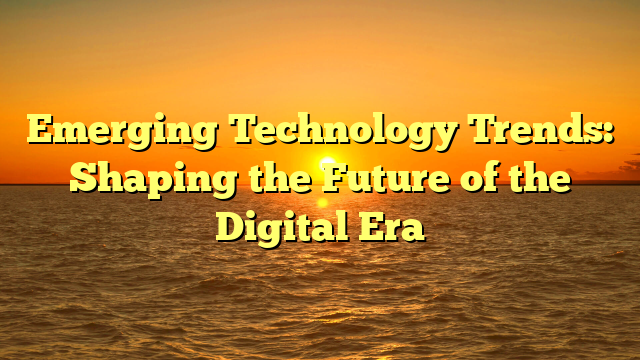Technology continues to evolve at an unprecedented pace, influencing the way people live, work, and interact. The latest technology trends are not only transforming business operations but also reshaping society as a whole. From artificial intelligence to sustainable innovations, these Tempur99 advancements are paving the way for a smarter and more connected world.
One of the most significant trends today is artificial intelligence (AI). AI is no longer limited to research labs; it is now applied across industries such as healthcare, finance, education, and entertainment. Advanced AI models are capable of analyzing vast amounts of data, providing insights that help organizations make faster and more accurate decisions. Generative AI, including intelligent chatbots and content creation tools, has recently gained widespread attention for its ability to automate complex tasks and enhance productivity.
Another key development is the Internet of Things (IoT). Everyday objects, from household appliances to industrial machinery, are now connected through the internet, creating an ecosystem of smart devices. This connectivity enables greater efficiency, predictive maintenance, and real-time monitoring. For example, smart homes can adjust lighting and temperature automatically, while connected factories improve productivity through automated systems. However, as IoT adoption grows, cybersecurity and data privacy challenges remain pressing concerns.
The expansion of 5G technology is also reshaping the digital landscape. With its ultra-fast connectivity and low latency, 5G enables seamless experiences in areas such as autonomous vehicles, augmented reality (AR), and virtual reality (VR). Cities worldwide are exploring how 5G can support smart infrastructure, improve transportation systems, and enhance public safety. For businesses, 5G creates opportunities to deliver innovative services that rely on high-speed communication.
Equally important is the rise of blockchain and Web3 technologies. These decentralized systems offer transparency, enhanced security, and new models of digital ownership. While blockchain is often associated with cryptocurrencies, its applications extend far beyond finance. Industries such as supply chain, real estate, and digital identity management are beginning to explore its potential. Despite regulatory uncertainties, many experts believe blockchain could redefine trust and governance in the digital age.
Sustainability has also become a driving force in technological innovation. Green technologies, such as renewable energy systems, electric vehicles, and energy-efficient devices, are gaining traction as organizations and governments seek to reduce their environmental impact. Tech companies are increasingly focusing on eco-friendly solutions, from recyclable hardware to cloud services powered by clean energy. This shift reflects a growing recognition that technological progress must align with environmental responsibility.
Meanwhile, quantum computing is emerging as a breakthrough field, although it is still in its early stages. Unlike classical computers, quantum machines can process complex calculations at unimaginable speeds. Potential applications include drug discovery, climate modeling, and cryptography. While large-scale adoption is still years away, quantum research is advancing rapidly and could revolutionize industries in the near future.
These technology trends highlight the immense potential of innovation in shaping a more efficient, intelligent, and sustainable future. Yet, they also bring challenges such as ethical concerns, data privacy, and the risk of widening the digital divide. Ensuring that technological progress benefits society as a whole will require collaboration between governments, businesses, and individuals.
In conclusion, the latest technology trends—from AI and IoT to 5G, blockchain, sustainability, and quantum computing—are driving a new era of transformation. As these innovations continue to mature, they will redefine how we experience the world and open opportunities for progress across all sectors of society.
